
When starting the construction of your home, choosing quality steel bars is essential for ensuring the integrity, safety, and longevity of your building. Making an informed decision is crucial, as making the wrong choice will result in building issues, increased costs, and safety hazards.
With a wide variety of steel available, you need to consider a few factors; this write-up will help you select good-quality steel.
What Are the Different Types Of Steel Bars For Construction?
Different steel bars are widely used in construction, each with unique properties and benefits. These are a few common types of steel bars:
-
Mild steel
-
TMT Steel
-
Fe 500, Fe 600
- Fe 550d TMT bars
-
12mm TMT bars
-
32mm TMT bars
-
Prestressing steel bars
-
Rebar steel
-
Stainless steel
- HYSD bars
-
Carbon steel
-
TMX bars
1. Mild Steel Bars:
Mild steel bars, also known as “plain bars,” are the most basic type of steel bars and are popular for construction applications. They have a low carbon content and are easy to weld and bend, but they have less tensile strength when compared to other steel bars. However, mild steel bars are mostly used in small-scale building projects and structures where very high tensile strength is not their primary requirement.
2. TMT Steel Bars:
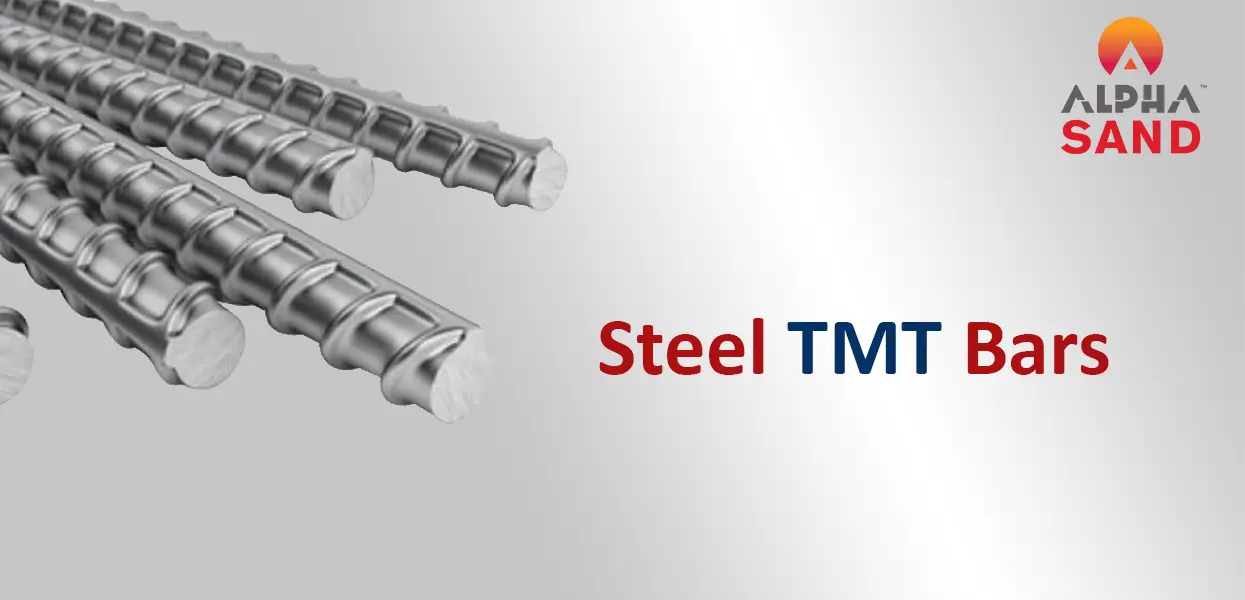
TMT steel bars, also known as Thermo-Mechanically-Treated steel bars, are highly used in the Indian construction industry because of their high strength, ductility, and resistance to corrosion. The TMT process includes rapid cooling of hot bars, resulting in a robust outer surface and a softer interior core. This distinct structure provides excellent earthquake resistance, making TMT steel bars suited for high-rise buildings and structures in earthquake-prone zones.
3. Fe 500 and Fe 600 Steel Bars:
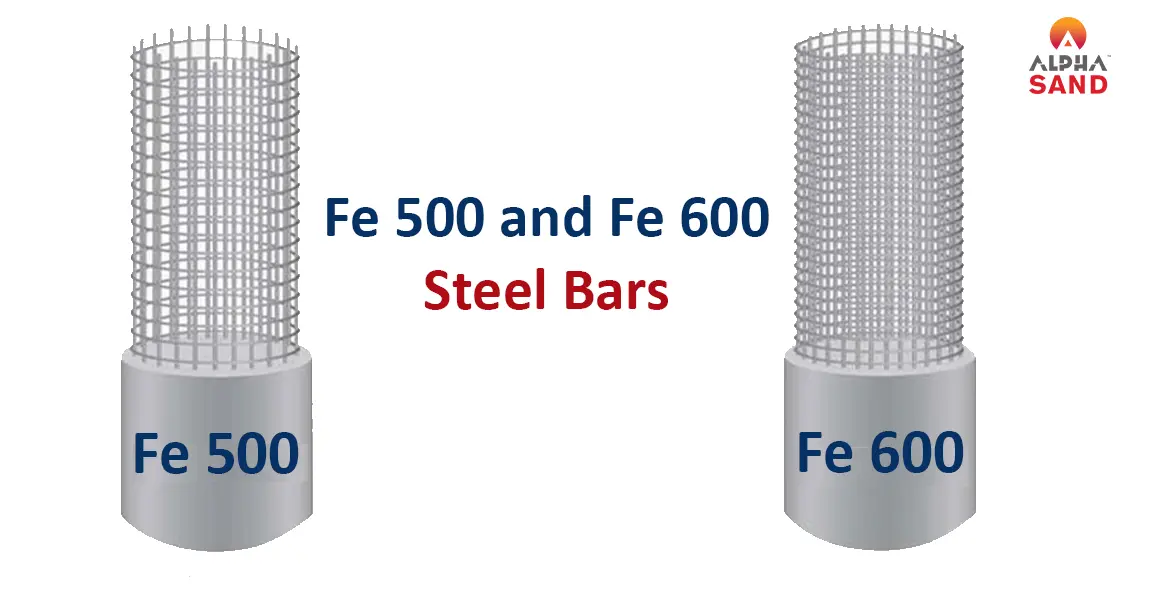
Fe 500 and Fe 600 are specific steel grades of TMT bars that specify the minimum yield strength of the steel. Fe 500 TMT steel bars have a minimum yield strength of 500 N/mm² and are commonly used in residential and commercial buildings that require moderate tensile strength. Fe 500 TMT steel bars have a minimum yield strength of 600 N/mm² that offer higher tensile strength and are utilized in heavy-duty construction projects such as bridges and industrial structures.
4. Fe 550D TMT Bars:
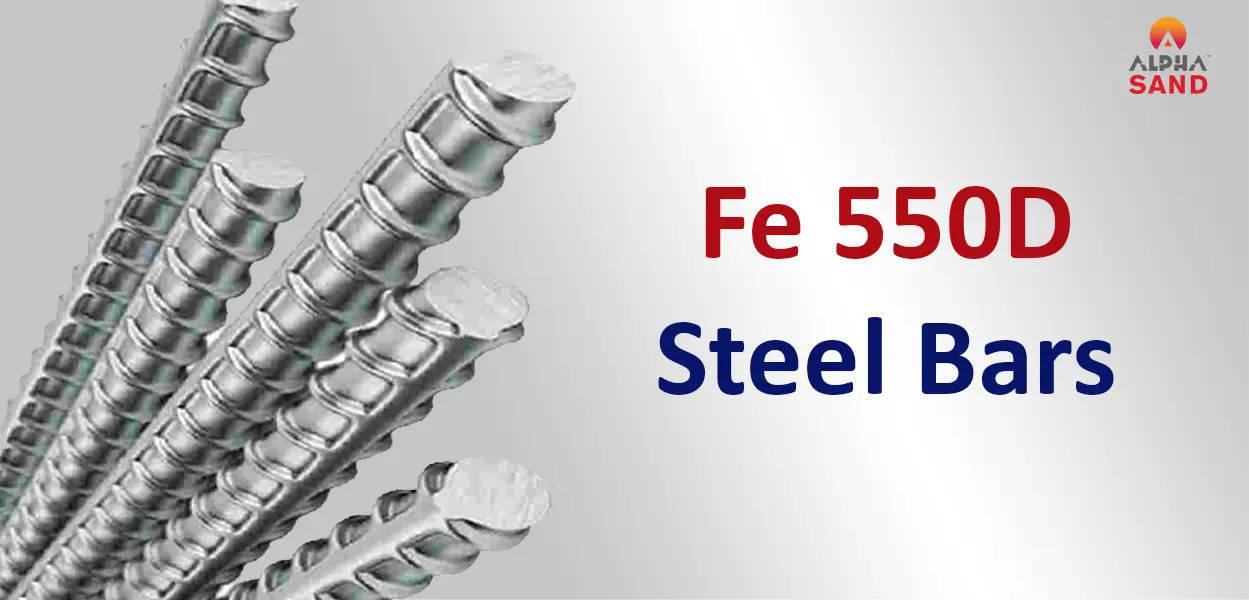
Fe 550D TMT Bars are a grade of TMT steel bars that have good ductility and strength. The ‘D’ in the Fe 550D stands for ductility, which means that these bars have greater elongation qualities. Fe 550D steel bars are used in important construction projects that demand high strength and ductility.
5. 12mm TMT Bars:
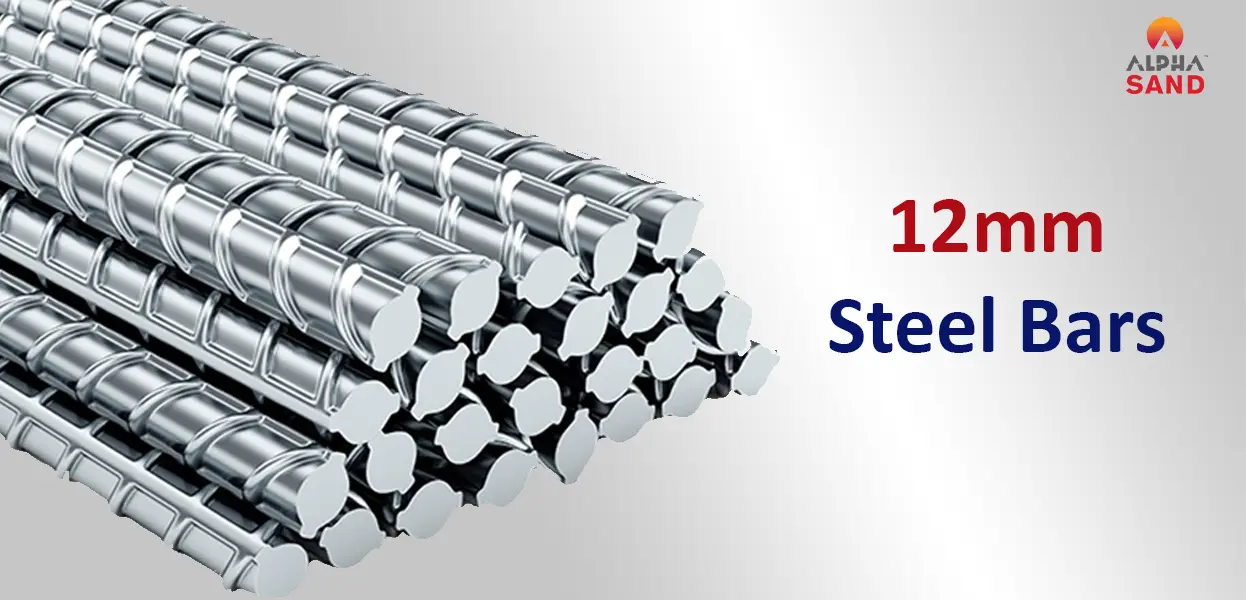
12 mm TMT steel bars are small-diameter TMT bars that are commonly used in residential construction. These bars provide an adequate balance of strength and flexibility, as they are commonly used in slabs, beams, and columns.
6. 32mm TMT Bars:
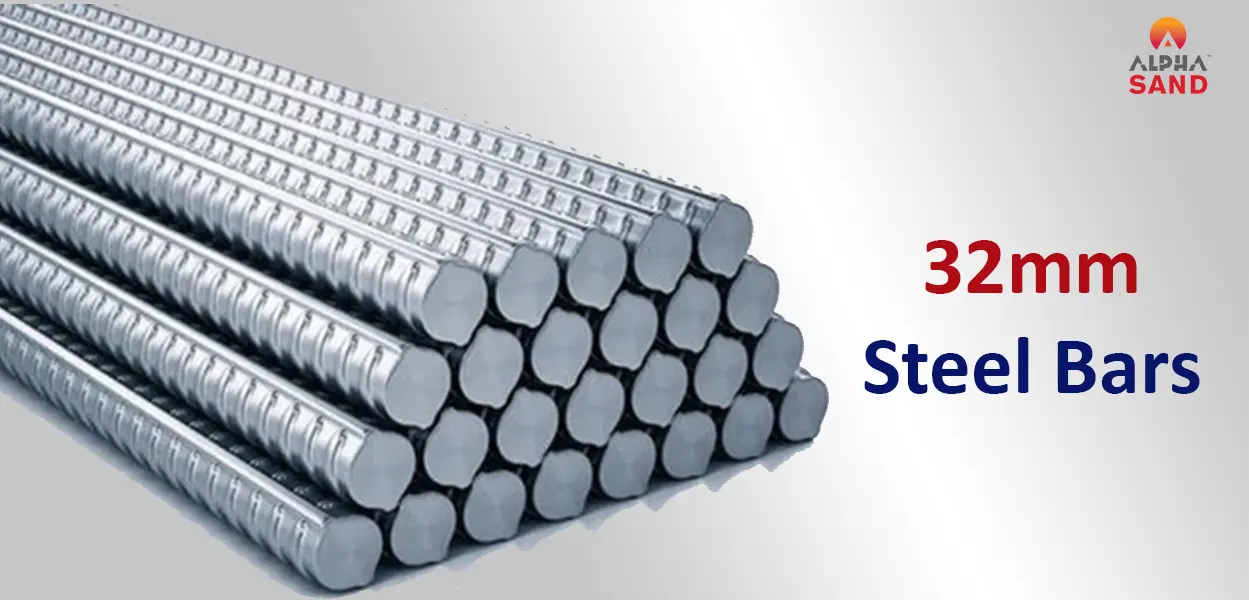
32 mm TMT bars are larger-diameter bars that are used in construction projects for high load-bearing capacity. These bars are primarily used in large industrial construction or infrastructure projects such as dams, bridges, and multi-story buildings where additional strength is required. The wider diameter provides stability and strength to the structure.
7. Prestressing Steel Bars:
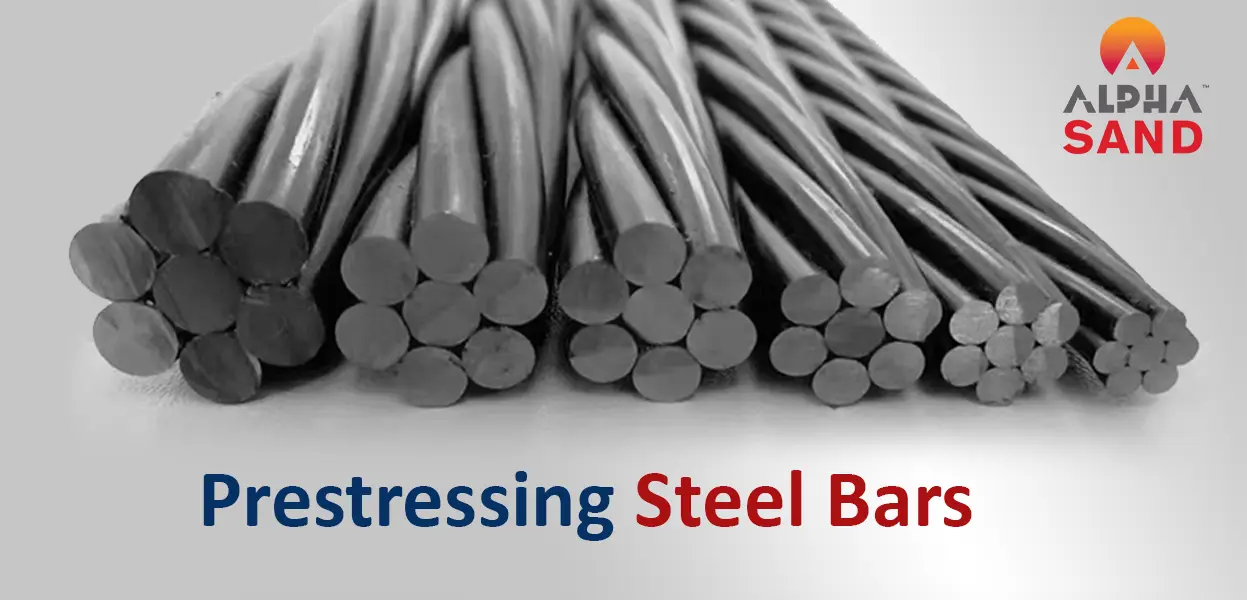
Prestressing steel bars are used in prestressed concrete buildings. These steel bars are pre-tensioned even before the concrete gets poured, which helps counteract the tensile stresses that arise while the structure is under load. Prestressing steel bars have a higher load-bearing capacity and are widely employed in the construction of long-span and high-rise structures.
8. Rebar Steel Bars:
Rebar steel bars, also known as reinforcing bars or deformed steel bars, are ribbed steel bars utilized to reinforce concrete. The ribs on the surface of the bars increase the connection between the concrete and steel, resulting in better load transfer. Rebar steel is available in a variety of grades and diameters, making it appropriate for a wide range of building applications.
9. Stainless Steel Bars:
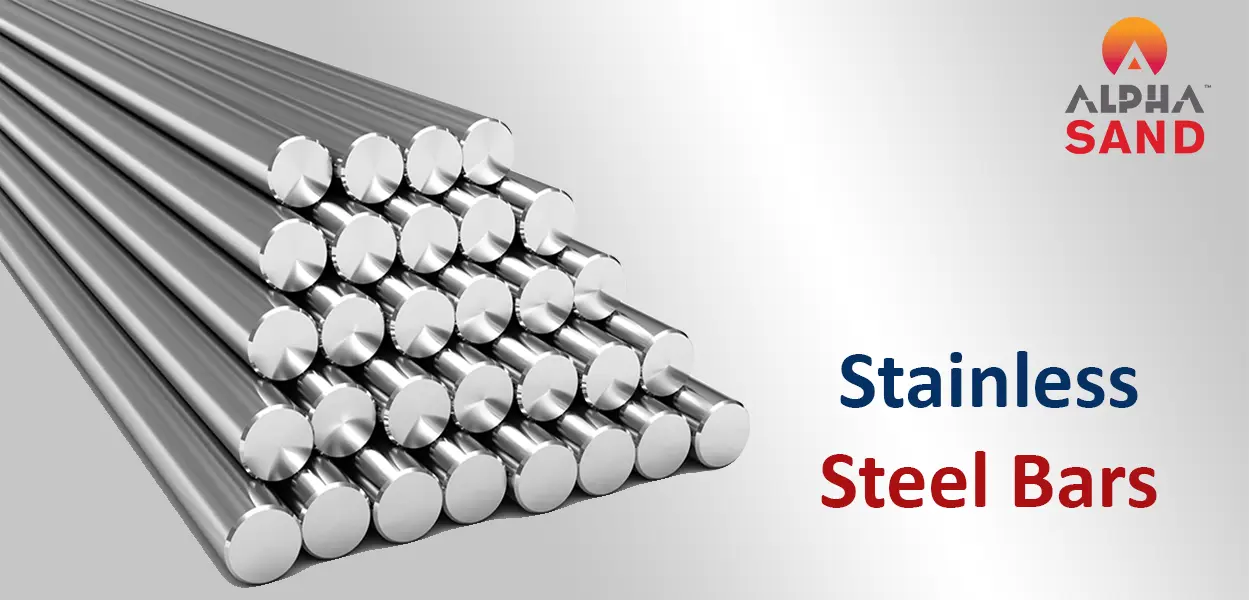
Stainless steel bars are used in building projects that require high corrosion resistance, which is of utmost importance. These bars contain chromium, which provides excellent resistance to corrosion and rust. Stainless steel bars are widely used in marine construction, chemical plants, and other environments that are exposed to high levels of moisture and corrosion.
10. HYSD Bars:
HYSD bars, also known as High Yield Strength Deformed bars, are similar to TMT bars, but they are manufactured using a different procedure. HYSD bars have a greater yield strength compared to mild steel bars and are used in reinforced concrete structures to increase tensile strength and load-bearing capacity.
11. Carbon Steel Bars:
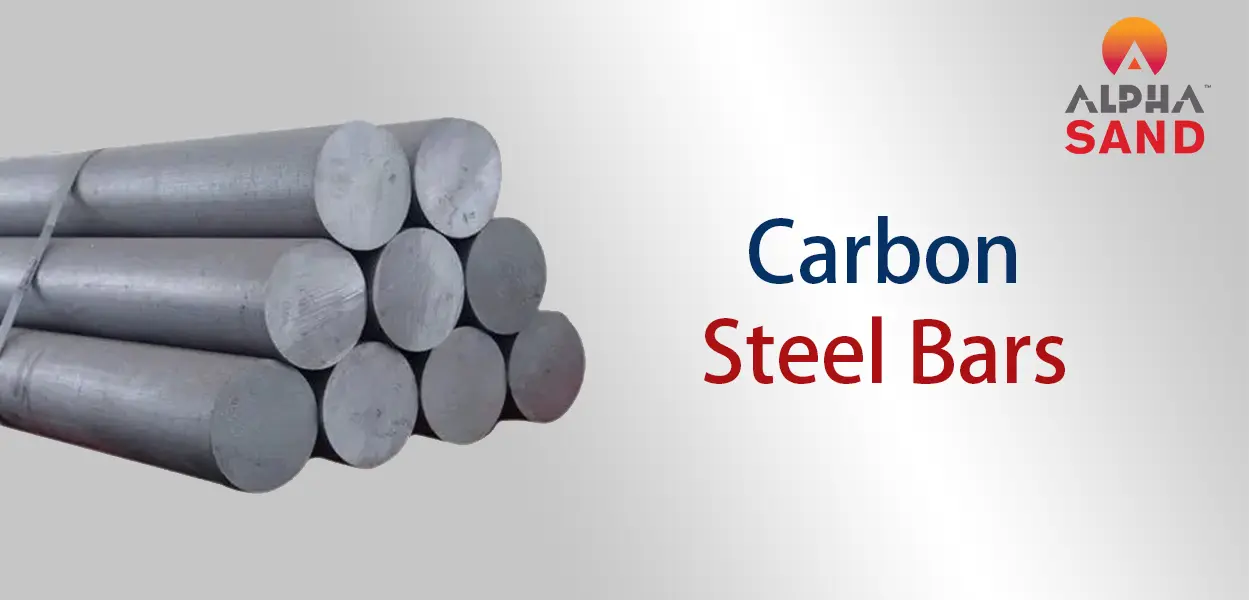
Carbon steel bars have a higher carbon content, which provides increased strength and hardness. These steel bars are utilized in construction projects that require high tensile strength. These are less ductile and more susceptible to corrosion when compared to other steel bars.
12. TMX Bars:
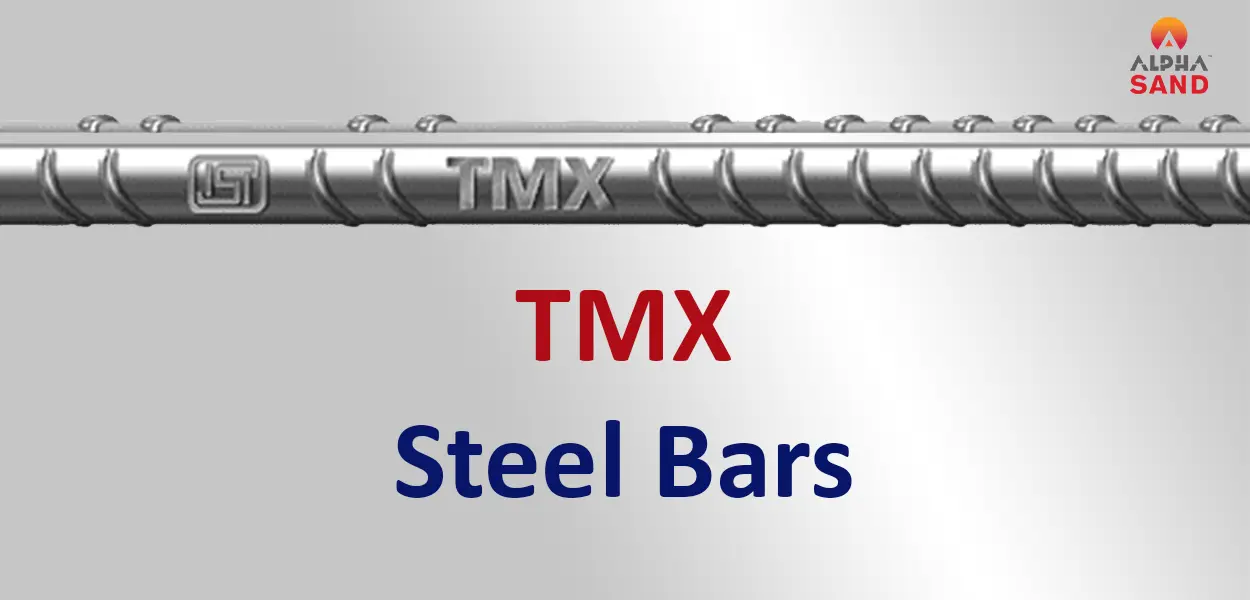
TMX bars, also known as Thermo-Mechanically Treated Extra bars, are an advanced variant of TMT bars that provide greater strength, ductility, and corrosion resistance. These bars are manufactured using a specific method that improves their mechanical qualities, making them ideal for essential infrastructure projects.
What Are the Things to Consider While Choosing the Best Steel Rods for Construction?
Various factors should be considered when understanding how to select steel for constructing a home to ensure its success.
1. Check the Diameter and Grade of the Steel:
The diameter and grade of steel rods significantly impact their load-bearing capacity. The appropriate choice depends on your project's specific requirements. Verify the required diameter and grade of steel specified in the building design. If you are working on a heavy-load building, you will need thicker, higher-grade steel bars to meet the demands.
2. Check the Weight:
Different construction projects require varying steel rod weights. The weight of the steel rods can affect handling, transportation, and installation. Ensure that the weight meets the project requirements. If you use steel rods that are too lightweight for your application, you risk structural failure.
3. Check for Cracks:
Examine the steel rods carefully for any visible cracks or defects. Even smaller cracks can weaken the structural integrity over time. Avoid rods with cracks, as they pose a significant safety hazard. Choose steel rods with smooth surfaces and without any visible cracks.
4. Check for Rust and Coating:
Rust can compromise the integrity of the steel. Inspect the condition of the rods and check for any protective coatings, such as epoxy or zinc, to prevent corrosion. Ensures genuine and certified steel rods are free from rust or excessive corrosion. Rust can often be removed, but deep corrosion may warrant discarding the rod.
5. Check for the Brand of Steel:
The brand of steel you choose matters. Reputable brands typically offer higher-quality steel rods, ensuring greater peace of mind in the reliability and strength of the materials. Choosing reliable brands ensures the use of genuine and certified steel, which meets industry standards.
6. Finished Edges:
Consider the types of edges on the steel bars. Rounded edges are preferred, as they minimise the risk of injuries during handling and installation. Well-finished edges make steel rods easier to handle and assemble during construction. This not only contributes to the quality of your work but also improves the efficiency of the construction.
Summary:
Choosing the right steel bars for construction is determined by the specific requirements of the project, including load-bearing capacity, flexibility, and resistance to environmental factors. Each type of steel bar has unique properties that make it appropriate for a variety of construction applications. Hope this article helped you understand the properties and benefits of these steel bars and construct a strong and durable home by choosing the right kind of steel. Happy Construction!!